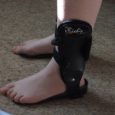
A dental emergency will take even the most unwilling person to a dental clinic. A dental emergency has to be attended to quickly, not only because you could be in severe pain, but also because it could cause permanent damage to your teeth or gums if left untreated even if the pain alleviates.
We know that prevention is always easier than cure, and dentist Chermside recommends that individuals undergo routine cleanings and examinations every 6 months in order to continue the optimum health of their teeth and gums. A professional in-clinic cleaning allows the dentist to examine the teeth and gum tissue, as well as take x-rays of the primary support structure in order to detect and prevent potential problems.
It’s distressing to wait even just a couple of hours for a dentist that could seem like an eternity, so here are some common dental problems and how to act fast on them till you see your dentist.
Toothache
Most people have felt the pain of a toothache and it’s real! The first thing to do is to rinse your mouth using warm saltwater. The saltwater ‘draws’ fluid out from the tissues of the affected area. You’ve probably come across home remedies such as placing an aspirin right on the tooth causing the pain. Don’t place any aspirin on the tooth as that can burn your gum tissues, but you can take an over the counter pain killer.
Abscess
An abscess is a pimple-like painful swelling on your gums. Till you get to a Eugene dentist, try rinsing your mouth with a mild salt water solution (1/2 teaspoon of table salt in 8 ounces of water) several times a day.
Knocked Out Tooth
If you’re able to get to a dentist within an hour, there’s a good chance that the tooth can be saved. A knocked out tooth needs first to be cleaned with just a rinse; don’t do any brushing or scrubbing on it. You might be able to place it in the socket again, till you see your dentist, but if you can’t, don’t force it. Keep the tooth in a mixture of salt and water, or milk. This will keep the tissues alive as that works as a cell growth medium.
Fallen Crown
For a start, use some clove oil with a swab on the area the crown fell from to help prevent pain. Cloves have antibacterial, anti-inflammatory power and can help minimize toothache. You can purchase dental cement or dental adhesive that you can get over the counter, to try to put the crown back into place.
In all cases, get to your dentist as soon as you can. Most dentists will reserve a time in the day to attend to emergency cases. You can avoid many emergencies, such as always using scissors to cut something, like a small package, instead of using your teeth, or if you’re into contact sports, use a mouthguard while playing. Combining a good oral routine with regular visits to the dentist will keep teeth and gums healthy.




